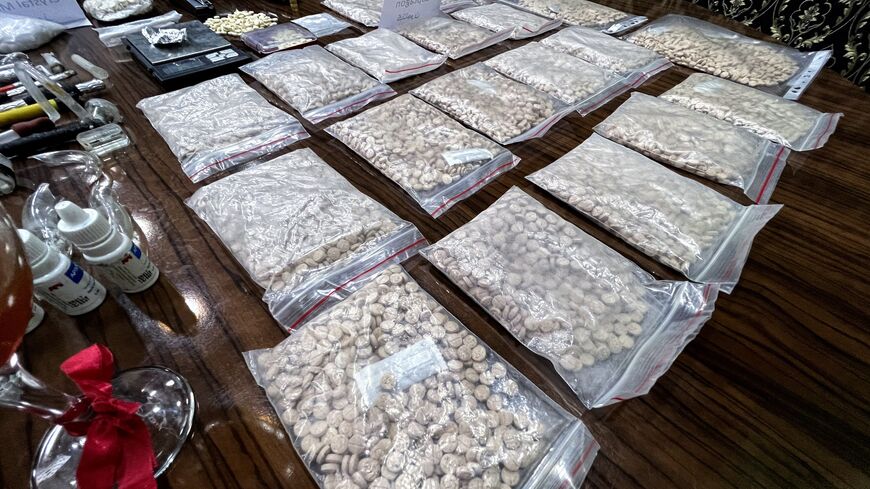US Monitor reveals new U.S strategy about Captagon trade in Syria
In the coming weeks, the Biden administration will present to Congress an interagency plan to deal with the multibillion-dollar drug trade of the Damascus government.

The US Monitor reported that the Biden administration will soon release a congressional-approved strategy to stem the flow of Captagon, an illegal stimulant drug.
Twelve years after the outbreak of the crisis, Syria has emerged as a global center for Captagon, and Western officials say that the drug has become a major source of revenue for the Damascus government in the face of the broad economic sanctions imposed by the United States and its European allies.
Approximately 80% of the world's Captagon supply is now produced in Syria, where Western officials say Assad's relatives and associates have set up a lucrative business.
According to Al-Monitor, the key players is the Fourth Division of the Damascus Army, which is commanded by Assad's brother, Maher al-Assad. The president's cousin, Samer Kamal al-Assad who supervises the Captagon facilities in the port of Latakia in coordination with the Fourth Division.
A provision of the National Defense Authorization Act for fiscal year 2023, which President Joe Biden signed in December, requires the administration to submit to Congress a written strategy detailing its interagency plan to “deny, degrade, and dismantle Assad-related drug production and trafficking."
On Thursday, the Deputy Assistant Secretary of State in the Office of Near Eastern Affairs concerned with the file of Syria and the Levant said that the administration will implement its strategy in the coming weeks.
Last year, Congress similarly asked the administration to release a report on the Assad family's wealth, but critics said the report did little of what was already known.
Rep. French Hill, who sponsored the original legislation requiring an interagency strategy on Captagon, called the drug "a massive source of funding for Assad and his terrorist regime."
"Because this drug has grown to be produced on an industrial scale by Assad, his family and his regime, we also run the risk of it entering transnational drug networks and reaching the Western Hemisphere," Hill told the site.
a.k
ANHA













